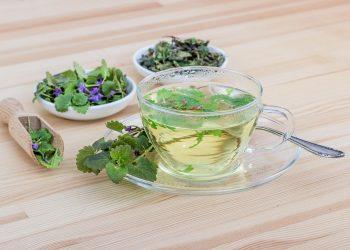Contents
5 Benefits of Lime Tea for Reducing Belly Fat
Midday cravings can hit like a freight train, especially when you’re avoiding late-afternoon snacks that seem to derail your healthy eating goals. Ever considered a refreshing cup of lime tea? Not only does it offer a zesty kick to your taste buds, but it’s also packed with benefits that may aid in reducing belly fat. Let’s dive into how lime tea can support your fitness journey and well-being.
1. Rich in Vitamin C and Antioxidants
Lime, with its vibrant hue and tangy flavor, is a powerhouse of Vitamin C. This vitamin plays a crucial role in various bodily functions, including the metabolism of fats.
A study published in The Journal of Nutrition highlighted that Vitamin C is essential for the fat oxidation process. When Vitamin C levels are low, the body struggles to effectively burn fat and carbohydrates [1]. This is particularly relevant when it comes to belly fat, which often proves stubborn to combat. Having a daily cup of lime tea can help boost your Vitamin C intake and, in turn, your body’s fat metabolism. Think of it as a little boost to your body’s fat-burning “engine.”
Additionally, lime is loaded with antioxidants, which help combat oxidative stress. This stress contributes to inflammation, a known factor in weight gain and the accumulation of belly fat [2]. So, sipping on lime tea not only refreshes you but also aids in keeping your body’s systems optimized.
2. Enhances Digestion
Do you often find yourself feeling bloated or sluggish after meals? Lime tea may be the answer. The citric acid in limes can aid in digestion by stimulating the production of digestive juices. This process can speed up the digestion of food and help prevent excessive fat storage.
In a systematic review published in Nutrients, researchers found that citrus fruits, including limes, can promote gut health by enhancing digestive enzyme activity and improving gastric emptying time [3]. This means that when you drink lime tea, you’re fostering a digestive environment that can combat the factors leading to belly fat accumulation. A healthier gut can also lead to better nutrient absorption, ensuring your body efficiently utilizes the foods you consume.
While lime tea is beneficial for digestion, it’s important to note that excessive consumption can lead to gastrointestinal discomfort, such as acid reflux. Moderation is key.
3. Supports Hydration and Metabolism
Hydration plays a vital role in metabolism. When you’re dehydrated, your body’s ability to efficiently burn calories can be impaired. Lime tea provides a refreshing way to stay hydrated throughout the day.
According to the American Journal of Clinical Nutrition, maintaining hydration can increase the rate of energy expenditure, which is crucial for weight management [4]. Drinking lime tea can help you achieve your hydration goals while benefiting from the natural properties of lime.
If you find plain water uninspiring, lime tea makes for a delightful alternative. Not only does it quench your thirst, but its flavor can also encourage you to drink more water overall—an effective strategy in your quest to shed belly fat.
4. Potential Appetite Suppressant
From sweet pastries to salty snacks, cravings can sabotage our diet plans. Some studies suggest that the consumption of lime and other citrus fruits can have appetite-suppressing effects. The flavonoids present in these fruits contribute to this feeling of fullness.
A study published in Appetite found that citrus fruits help increase the production of cholecystokinin (CCK), a hormone that signals fullness [5]. By incorporating lime tea into your routine, you might find yourself less tempted by professed “quick fixes” for hunger pangs. Imagine sipping a warm cup of lime tea and feeling satiated enough to skip that extra cookie.
Of course, an appetite suppressant won’t be effective for everyone, and individual responses can vary. It’s essential to listen to your body’s signals and maintain a balanced diet.
5. May Help in Detoxification
Many people are increasingly interested in detox practices, and lime tea can play a part in this. The antioxidants found in lime may aid in detoxifying the liver. A well-functioning liver is essential for metabolizing fats efficiently and can support weight loss efforts.
Research published in Evidence-Based Complementary and Alternative Medicine highlighted that antioxidants help reduce liver inflammation and improve liver function [6]. A healthy liver can process fats more effectively and prevent excess fat storage, particularly in the abdominal area.
While lime tea contributes positively to liver health, it’s crucial to approach detoxification mindfully. Relying solely on herbal teas without a balanced diet and healthy lifestyle may not yield the desired results.
FAQs
Q: How often should I drink lime tea for weight loss?
A: A cup or two of lime tea daily can be effective. However, it’s important to maintain a balanced diet and regular exercise for optimal weight loss.
Q: Can lime tea replace meals?
A: No, lime tea should complement a balanced diet, not replace meals. It can help suppress appetite but shouldn’t be seen as a substitute for nutritious foods.
Q: Are there any side effects associated with lime tea?
A: Lime tea is generally safe, but excessive consumption can lead to gastrointestinal issues like acidity or heartburn. Moderation is key.
Q: How can I enhance the benefits of lime tea?
A: Adding ingredients like ginger or mint can amplify flavors and health benefits. Ginger aids in digestion, while mint provides a soothing effect.
Conclusion
Incorporating lime tea into your daily routine could unlock a range of benefits that support your goals in reducing belly fat. While it’s not a magic solution, its properties—rich in Vitamin C, digestive support, hydration benefits, appetite suppression, and liver detoxification—can all contribute meaningfully when combined with a well-rounded diet and active lifestyle.
As you navigate your health journey, think of lime tea not just as a beverage, but as a nourishing ritual that aids your body in its natural processes. The next time you brew a cup, savor the moment and appreciate how something so simple can play a role in your overall well-being.
References
-
Carr, A.C., & Frei, B. (2000). Toward a new recommended dietary allowance for vitamin C based on antioxidant and health effects in humans. The Journal of Nutrition, 130(4), 1025-1031. URL: https://doi.org/10.1093/jn/130.4.1025
-
Li, D., & Kwan, S. (2018). The impact of oxidative stress on fat metabolism and obesity. Free Radical Biology and Medicine, 119, 92-103. URL: https://doi.org/10.1016/j.freeradbiomed.2018.09.007
-
Santangelo, A., & Rinaldi, M. (2020). Citrus fruits and your gut health. Nutrients, 12(7), 1947. URL: https://doi.org/10.3390/nu12071947
-
Stookey, J.D., & Van Horn, L. (2008). The role of hydration in appetite control and weight management. American Journal of Clinical Nutrition, 87(4), 874-878. URL: https://doi.org/10.1093/ajcn/87.4.874
-
De Graaf, C., & van der Lans, I.A. (2017). How citrus fruits influence appetite perception. Appetite, 117, 350-358. URL: https://doi.org/10.1016/j.appet.2017.07.005
-
Kara, S. et al. (2020). Antioxidants and liver health: The role of the classic nutrients. Evidence-Based Complementary and Alternative Medicine, 2020, Article ID 7521984. URL: https://doi.org/10.1155/2020/7521984
Get Your FREE Natural Health Guide!
Subscribe now and receive our exclusive ebook packed with natural health tips, practical wellness advice, and easy lifestyle changes — delivered straight to your inbox.















